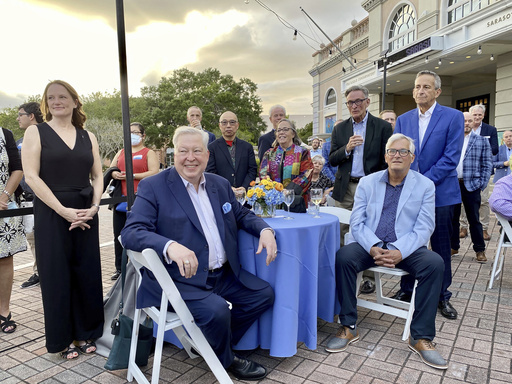In the early 1980s, Roy Cockrum was attempting to establish himself as an actor in New York City after college, struggling to make ends meet on a meager income from off-Broadway performances. Despite his financial difficulties, Cockrum managed to stay afloat by moonlighting as a financial-document proofreader, immersing himself in terms like risk factors and operating margins.
In 2014, at the age of 58, Cockrum’s fortunes dramatically shifted when he won a $153 million lump-sum payment from America’s Powerball lottery. Instead of hoarding the wealth, he chose to allocate half of his after-tax winnings, amounting to around $60 million, to create a foundation aimed at revitalizing boldness in U.S. nonprofit theaters.
Since then, nearly 10% of Powerball winners who received payouts of at least $100 million have established foundations, with the Roy Cockrum Foundation standing out for its contributions. The foundation has generously distributed approximately $25 million, supporting 47 theatrical productions nationwide, including a Tony Awards’ best-play finalist called “Prayer for the French Republic.”
Renowned for his dedication to the theater world, Cockrum has a talent for recognizing potential and inspiring others through his philanthropy. His foundation’s development began with a visit to London in 2004, where he was inspired by a National Theatre performance, igniting a desire to replicate such grandeur in American theaters.
Cockrum’s desire to see brilliant theatrical projects come to life led to the foundation’s establishment, with theater consultant Benita Hofstetter Koman onboard as the executive director. Their joint efforts have empowered numerous artistic dreams, such as funding Chicago’s Goodman Theatre to stage a prodigious production of Roberto Bolaño’s novel “2666.”
Over the past decade, the Cockrum Foundation has had an impressive success rate, with the vast majority of its grants meeting expectations. Despite occasional setbacks like the COVID-19 pandemic disrupting plans, the foundation remains dedicated to enabling projects deemed unfeasible by traditional standards.
By supporting a diverse array of productions, from classic plays to those with social justice themes, the foundation has made a lasting impact on the theater community. Cockrum’s unwavering commitment extends to sustaining the foundation’s mission well into the future, ensuring a legacy of support for the arts.
Although faced with challenges such as fraudulent attempts to use his name for deceptive grants, Cockrum remains steadfast in his dedication to nurturing theatrical endeavors. Looking ahead, he envisions the foundation continuing its mission until at least 2113, safeguarding a future where theater thrives for generations to come.


